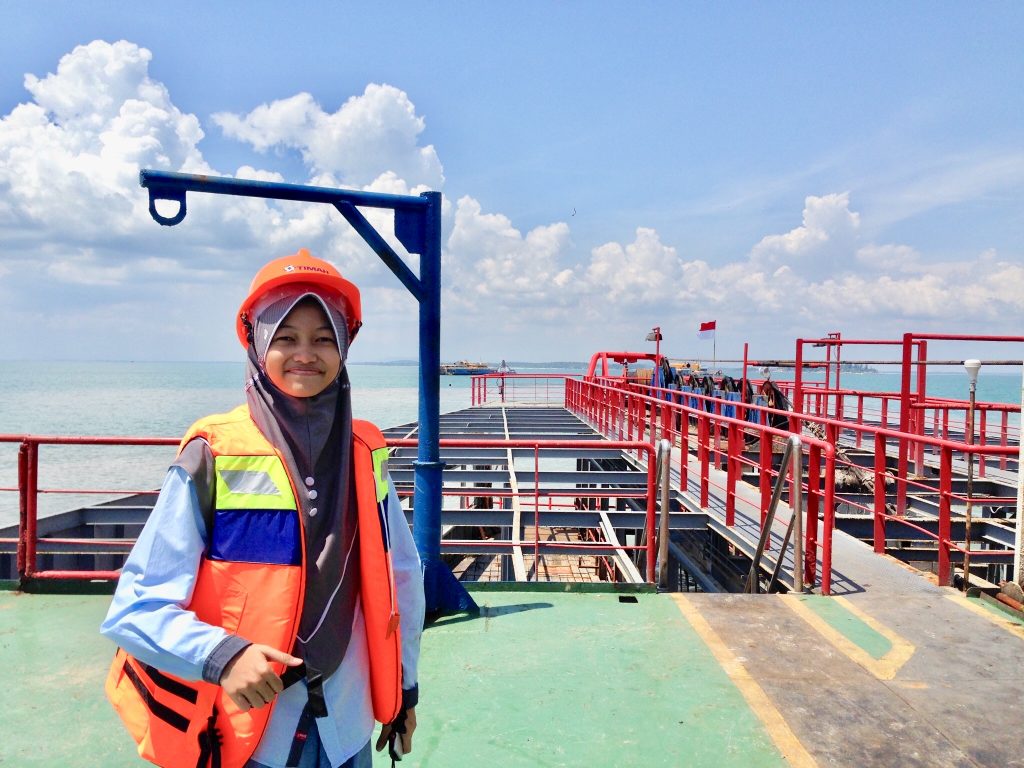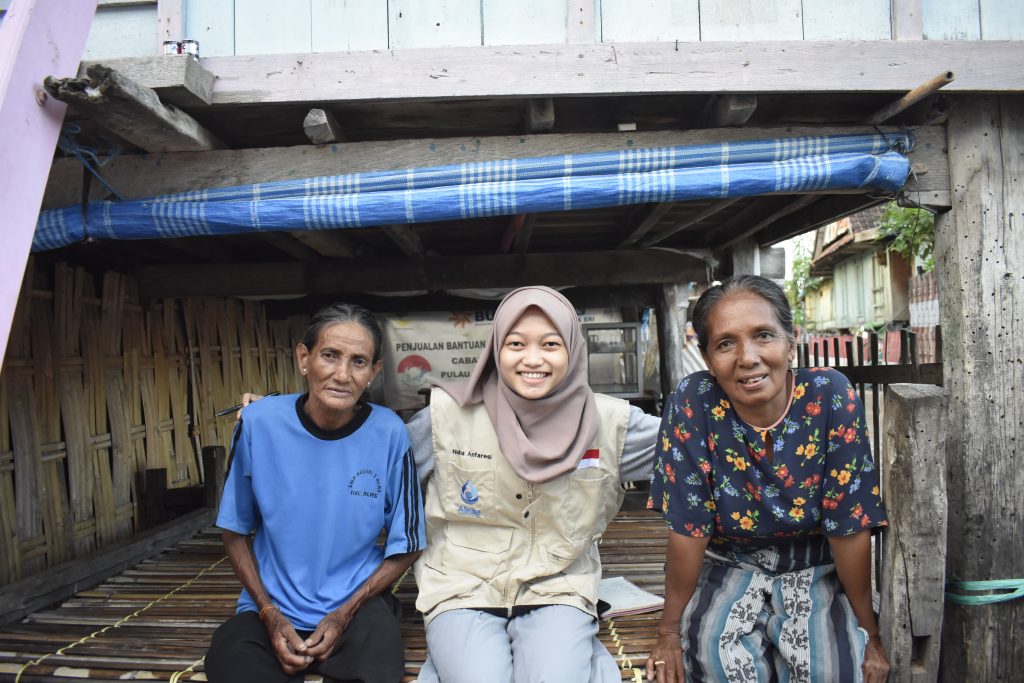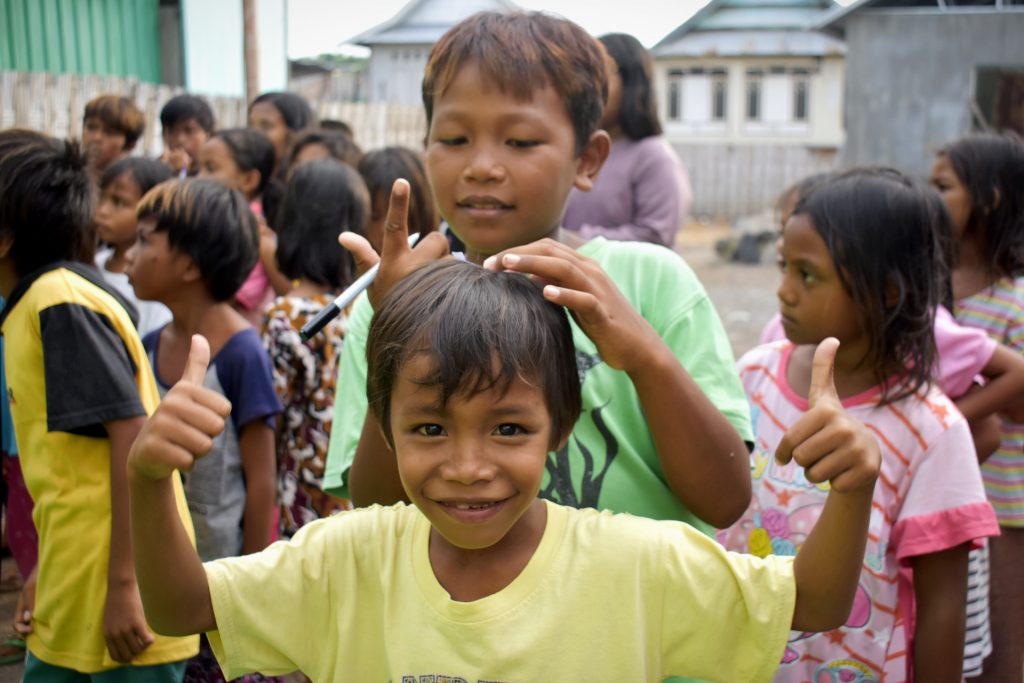Bangka Island, located east of Sumatra, Indonesia, is surrounded by golden sands and pristine water – a bucket list destination for diving enthusiasts. Yet, beneath the island’s lush rainforest canopy, a different story unfolds. Massive craters scar the land as people mine tin from its sandy soil. Indonesia is the world’s second-largest producer of tin, after China, and 90% of it comes from Bangka and its sister island, Belitung.
Sought-after for its versatility and resistance to corrosion, tin is used in packaging, construction and electronics – most notably as an essential soldering material for the circuit boards used in smartphones. After years of mining, Bangka and Belitung’s landscape has been changed forever. Its rainforests are dotted with thousands of craters filled with acidic water and heavy metals – polluted pools that have become breeding grounds for dengue fever and malaria.
People are getting sick from drinking polluted water… I want to change this in every home in my hometown.
The water that collects in abandoned tin-mining pits and the rivers that flow across the islands is the only freshwater resource for the 1.5 million people living in the Bangka- Belitung archipelago.
“People are getting sick from bathing in polluted water. Their skin becomes itchy, they get red rash and sometimes small lumps,” says Nuha Anfaresi, the founder of AiKite, a Bangka-based start-up that produces water filters in Indonesia, where water is often contaminated by industry, polluted by waste leachate, and waste littering. “I want to change this in every home in my country because the water is not clear enough.”

Towards clean water
Balancing academic commitments and establishing a business has not been easy for Anfaresi. At only 24 years old, she is a researcher, an entrepreneur and a lecturer on natural conservation at the University of Muhammadiyah, in Bangka. But since she was very young, Anfaresi has been deeply concerned about the environmental damage caused by tin mining in her hometown of Pangkalpinang, the capital and largest city of the Bangka-Belitung archipelago. She was committed to finding a solution to water pollution.
At the age of 16, Anfaresi proposed her ideas for water filtration at a national scientific competition in Indonesia and won, earning herself the opportunity to present her research at the prestigious International Science and Engineering Fair in Los Angeles. The experience motivated her to turn her ideas into practical solutions – she wanted to start her own company that could address water access, sanitation and environmental issues in Indonesia.

During her undergraduate studies in environmental engineering at the Islamic University of Indonesia, Anfaresi received a scholarship from the Swiss government to develop her start-up concept. With guidance and funding from organisations in Switzerland and Belgium, she laid the foundation for AiKite.
At AiKite, she and her team of researchers and volunteers developed the BankSand Water Filter. From the outside, it looks like any other filter found in most homes in Indonesia, but the adsorbent material inside is made from modified local sand that effectively removes heavy metals from tin mining wastewater. The filter can capture 90 to 100% of lead-heavy metal ions, is portable, and can be used in rural areas and cities. AiKite has already installed filters in Bangka, Java, and Sumatra and plans to scale up even further. “I want to reach many more areas of Indonesia that still don’t have access to clean, safe water,” Anfaresi says.
We want to empower communities to have a more sustainable future.
In 2023, Anfaresi moved to the United States to pursue a master’s in Civil and Environmental Engineering at the University of California, Berkeley, further strengthening her ability to scale AiKite. In 2023, she was recognised as a “change-maker” at an exhibition called “Cellphone: Unseen Connection” at the US National Museum of History in Washington, D.C., for her work on environmental technology and social contributions to communities in developing countries.
In 2022, Arup, a British consultancy firm in sustainability and the environment, chose Anfaresi as an environmental consultant for Southeast Asia and Young Panel for water projects in Australasia. Along the way, Anfaresi has gained valuable experience working with mentors and teachers from around the world who have supported her vision. “It has not always been an easy journey,” Anfaresi says. “But it has taught me valuable skills like resilience, leadership and effective communication, which have shaped both my professional and personal life.”
Building community
Indonesia is home to thousands of local languages and distinct customs, so it’s important to tailor communication to resonate with each community, says Anfaresi. “We conduct surveys and preliminary research on community culture before commencing a project, to make sure that cultural sensitivities are respected,” she says.
Building trust within these communities is at the foundation of Anfaresi’s approach. She immerses herself in local life for about a month before initiating any projects. This commitment to understanding a community’s needs fosters genuine relationships with the people and helps to foster long-lasting collaborations.

Translating complex engineering concepts into applications tailored to specific communities is difficult work. To bridge this gap, Anfarsi and her team of employees, interns, and volunteers run focus-group discussions with community members, ensuring that technical knowledge is communicated effectively and resonates with them. “We partner with local students, village representatives, and local contractors.
We transfer technical knowledge to empower the community and make sure the project can be sustained in the long run,” she says. AiKite also engages in initiatives to raise awareness and education around clean water, sanitation and hygiene, with a workforce of young volunteers that Anfaresi is training to join the next generation of entrepreneurs and innovators. “We don’t want only to provide water filtration solutions,” she says. “We also want to empower communities so that they can have a more sustainable future.”
Story by Manuela Callari


Comments are closed.